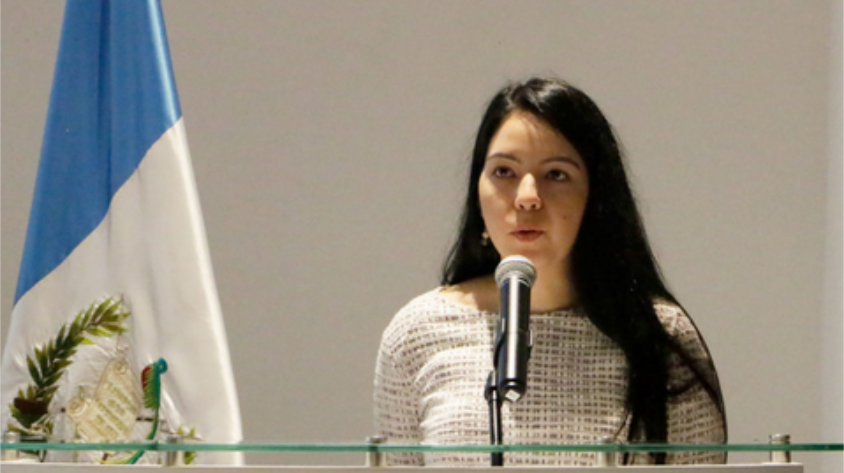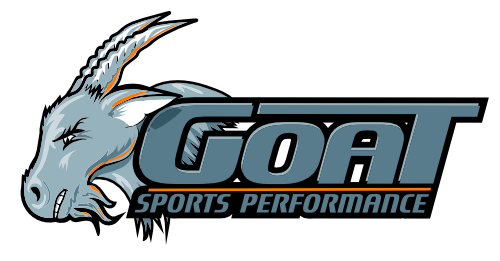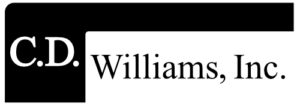
Thoughts on my temporary job at Universidad del Istmo
In February of 2018, I graduated from Universidad del Istmo with a Bachelor’s degree in Clinical Psychology, after four intense years of studying and lots of racquetball. During those four years, I had the faculty’s support to travel to international competitions. I managed to continue training five to six times a week, maintaining above a 90% GPA in my classes. I traveled almost every month to training camps and tournaments, taking advantage of my time during flights and in between matches to do homework and online exams. It was hard and tiring.
I decided that once I was done with my bachelor’s, I would take at least one year to focus on my sport, so I spent 2018 mainly training and competing in racquetball. In January of this year, I received a call from the Coordinator of the Psychology degree at Universidad del Istmo, asking if I had time to cover her job while she went on maternity leave. I was surprised by the offer, and thought it would be a great opportunity for professional growth. However, I also doubted if this was the right moment to take a job, because the Pan Am Games, held only once every four years, would be held during July and August of this year. This is the most important event in which racquetball athletes compete. It is the biggest stage for our sport.
I decided to start the application process for the job, but I was faced with the challenge of explaining my “lack of professional experience” in the psychology field. I realized that for those that don’t know what the life of an athlete is like, it is hard to understand that it is not simply about going to the gym and chasing a ball around. Being an athlete requires a lot of discipline, organization, teamwork with other athletes, coaches, physiotherapists, psychologists, directives, etc. We analyze our performance constantly, perform physical tests, participate in educational activities, and strive for excellence every day to have the best performance possible in moments of high pressure. We enjoy the experience because we know we are representing our country while doing what we love. We learn to be independent, and also to relate and work with people from all ages, cultures, socioeconomic backgrounds, beliefs, etc. These habits are very useful in the professional world, and as athletes, we need to learn to share this message. It is also important to find opportunities to get experience in other fields for the future.
I started the job at the end of February. I changed my shorts, tennis shoes, and sweat of every morning for formal outfits, heels, and make up. Those who know me well will understand why the first weeks I felt I was wearing a costume every day. But from the beginning, I enjoyed the experience a lot. The schedule left me with enough time to continue preparing for the Pan Am Games. My dedication and effort to sport continued as usual, but I still got comments in racquetball like: “Your results this year will get worse. You shouldn’t take this job. This is a very important year for your athletic career, so you should dedicate a 100% of your time to racquetball…” This happened even though everyone knew this would be a temporary job; I would be done around June, and I would still have several weeks to finish preparing for the Games. It made me angry, and I had to remind myself those making these comments didn’t have bad intentions. Rather, they were trying to help me from their perspective. However, I knew I was doing what was best for me and that my job wouldn’t hinder me from achieving my goals.
Today, I can say that these months at UNIS have had a positive impact on my performance as an athlete. The job has helped me become more disciplined, organized, and more strict with my nutrition. Every morning, I prepare a huge lunch box that includes my breakfast, lunch, and snacks for the day. I work from 8:00am to 2:00pm and train from 4:30pm to 7:30pm.
The new training routine means I have to do my racquetball and physical training sessions one after the other, which has been a mental and physical challenge that has given me a lot of satisfaction once I am done. Afterwards, I go home for dinner, a shower, and try to get at least seven hours of sleep every day. On the weekends I invest more time in my training and enjoy a good stretching session at the end, which during the week has been done on express mode.
At the office I have been able to test my discipline the multiple times I’ve had cookies and appetizers in front of me at university events. I managed to choose my fruits, nuts, and veggies instead, which is a great accomplishment for this food lover. My motivation has also increased; I feel happier and more fulfilled than before, and I am sure this is reflected in my racquetball game. I won’t say it has been easy. There is no doubt that I spent less hours in the court compared to last year, but this has also taught me to make the best out of each available minute of training.
In April, I competed at the Pan American Championships in Barranquilla, Colombia. Besides achieving my goal of qualifying for the PanAm Games in Lima, I had one of my best performances ever at this tournament. Now I am two months away from the Pan Am Games. My job as a temporary coordinator is about to be finished, and I am a little sad about this. I have enjoyed my time at UNIS, the diversity of tasks, the rigorousness, and the closeness with the employees and students of the Faculty of Humanities. I have new memories, experiences, and lessons. Clearly, I do not regret the decision I made at the beginning of the year…
Life as an athlete does not last forever, and this is why I believe that we have to look for ways to prepare in our professional career while we go after our sport-related dreams and goals. Even if it is not easy, I believe working or studying can make us better athletes. Besides, I believe there are places (like the Faculty of Humanities at UNIS) where we can find people who value the qualities we develop thanks to sports.
I also think there are moments when being a full-time athlete is the best option. So, if you need me in the upcoming months, you can find me at the racquetball courts or gym. Why? Because in August, I will be in Lima representing Guatemala next to a delegation of more than 150 athletes!
Finally, I want to motivate everyone to do what they like the most without paying too much attention to what other people say. It is okay to listen to others, but in the end we are the ones that choose and create our path. So follow your intuition, strive to do your best in whatever it is you are doing, and don’t forget to practice and play sports.
Pensamientos sobre mi trabajo temporal en la Universidad del Istmo
En febrero de 2018 me gradué de Psicología Clínica de la Universidad del Istmo, luego de cuatro años intensos de estudio y mucho racquetball. Durante toda la carrera, la facultad me apoyó para poder viajar a competencias internacionales. Me las arreglé para continuar entrenando de cinco a seis veces por semana como atleta de alto rendimiento, manteniendo un promedio arriba de 90 puntos. Viajé casi todos los meses a campamentos y torneos, aprovechando los vuelos y el tiempo entre partidos para hacer tareas o exámenes por Internet. Fue difícil y cansado.
Decidí que al terminar mi carrera, me tomaría al menos un año para enfocarme en mi deporte, así que todo el 2018 me dediqué a entrenar y competir en racquetball principalmente. En enero de este año recibí una llamada de la Coordinadora de la Carrera en Psicología Clínica de la UNIS, preguntando si tenía tiempo para cubrir su puesto mientras ella tomaba su descanso por maternidad. Me sorprendió la oferta y pensé que esta sería una gran oportunidad de crecimiento profesional. Sin embargo, también me surgió la duda de si era este el momento indicado para tomar el trabajo, ya que los juegos Panamericanos, celebrados solamente cada cuatro años, se llevarán a cabo entre julio y agosto de este año. Este es el evento más importante en el que participamos los atletas de racquetball. Es el escenario más grande para nuestro deporte.
Decidí comenzar el proceso de aplicación al trabajo, en el cual me encontré con el reto de explicar mi “falta de experiencia profesional” en el ámbito de la psicología. Comprendí que para aquellos que no conocen a profundidad la vida de un atleta de alto rendimiento, es difícil entender que el deporte no es simplemente ir al gimnasio y perseguir una pelota adentro de una cancha. Ser un atleta requiere de mucha disciplina, organización, trabajo en equipo con compañeros, entrenadores, fisioterapeutas, psicólogos, directivos, etc. Nos toca realizar informes, asistir a pruebas físicas, actividades de formación y buscar diariamente la excelencia para tener el mejor desempeño posible en momentos de altos niveles de presión. Disfrutamos la experiencia porque sabemos que estamos representando a nuestro país mientras hacemos lo que más nos gusta. Aprendemos a ser independientes y, por otro lado, a relacionarnos y trabajar con personas de todas las edades, culturas, creencias, niveles socioeconómicos, entre otros. Estos hábitos son muy útiles en el ámbito laboral y, como atletas, tenemos que aprender a compartir este mensaje. También es importante encontrar oportunidades de experiencia en otros campos para el futuro.
A finales de febrero comencé el trabajo. Cambié los shorts, tennis y el sudor de cada mañana por atuendos formales, tacones y maquillaje. Los que me conocen bien entenderán porqué las primeras semanas sentía que me estaba disfrazando. Pero desde el principio fue una experiencia que disfruté mucho. Además, el horario me permitió continuar con mi preparación para los Juegos Panamericanos de Lima 2019. Mi dedicación y entrega al deporte continuaron igual que siempre, pero a pesar de esto, en racquet recibí comentarios como: “Vas a empeorar tus resultados este año. No deberías tomar este trabajo. Es un año muy importante para tu carrera deportiva, así que deberías dedicar el 100% de tu tiempo al racquetball…” Esto a pesar de que todos sabíamos que este trabajo sería temporal; terminaría en el mes de junio aproximadamente y tendría varias semanas para terminar de prepararme al máximo para los Juegos Panamericanos. Estos comentarios me enfadaron, y tuve que recordarme que estas personas no me lo decían con malas intenciones. En realidad, buscaban ayudarme desde su perspectiva. Sin embargo, yo sabía que estaba haciendo lo mejor para mí y que el trabajo no sería una limitante para alcanzar mis objetivos.
Hoy, me atrevo a decir que trabajar estos meses en la UNIS tuvo un impacto positivo en mi desempeño como atleta. El trabajo me ayudó a ser más disciplinada, organizada y más estricta con mi alimentación. Cada mañana preparo mi mega lonchera con mi desayuno, almuerzo y refacciones para todo el día, trabajo de 8:00 a.m. a 2:00 p.m. y entreno de 4:30 a 7:30 p.m.
Con mi nueva rutina, me toca hacer las sesiones de racquet y preparación física una después de la otra, lo cual es un reto mental y físico, pero que me ha dado mucha satisfacción al terminar el día. Regreso a mi casa a cenar, bañarme y a dormir, intentando mantener al menos 7 horas de sueño al día. Los fines de semana invierto más tiempo a los entrenos y disfruto de una buena sesión de estiramiento al terminar, la cual entre semana es de forma express.
En el trabajo he podido poner a prueba mi disciplina las múltiples veces que he tenido frente a mí galletas, panes y boquitas en los eventos de la universidad. He logrado elegir mis frutas, nueces y verduras, un gran logro para esta amante de la comida. Mi motivación también ha aumentado, me siento más feliz y realizada que antes, lo cual estoy segura se ha reflejado en mi juego. No diré que ha sido fácil. Sin duda alguna he pasado menos horas en la cancha de racquet que el año pasado, pero esto también me ha enseñado a aprovechar al máximo cada minuto disponible para entrenar.
En abril fui a competir al Campeonato Panamericano de Racquetball en Barranquilla, Colombia. Además de cumplir con el objetivo de clasificar a los Juegos Panamericanos de Lima, tuve uno de mis mejores desempeños en este torneo. Ahora me encuentro a dos meses de los Juegos Panamericanos de Lima 2019. Mi trabajo como coordinadora temporal está por terminar y estoy un poco triste al respecto. Disfruté mucho mi tiempo en la UNIS, la diversidad de tareas, la exigencia, la cercanía con todas las personas que trabajan y estudian en la Facultad de Humanidades. Me llevo buenos recuerdos, experiencias y nuevos aprendizajes. Claramente, no me arrepiento de la decisión que tomé a principios de año…
La vida de atleta no dura para siempre y es por esto que debemos buscar formas de prepararnos en nuestra carrera profesional mientras vamos por nuestros sueños y metas en el deporte. A pesar de que no es fácil, creo que trabajar o estudiar nos puede hacer mejores deportistas. Además creo que hay varios lugares (como la Facultad de Humanidades de la UNIS) donde podemos encontrar gente que valore las cualidades que desarrollamos gracias al deporte.
También creo que hay momentos en los que ser un atleta de tiempo completo es la mejor opción. Así que si me necesitan en los próximos meses, me pueden encontrar en las canchas de racquet o el gimnasio. ¿Por qué? ¡Porque en agosto estaré en Lima representando a Guatemala junto a una delegación de más de 150 atletas!
Finalmente, quiero motivar a todos a que hagan lo que más les gusta, sin prestar demasiada importancia a lo que digan los demás. Está bien escuchar opiniones de otras personas, pero al final somos nosotros mismos los que elegimos y creamos nuestro camino. Sigan su intuición, esfuércense por hacer el mejor trabajo posible en lo que sea que hagan y no se olviden de jugar y practicar deportes.






